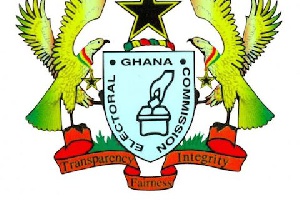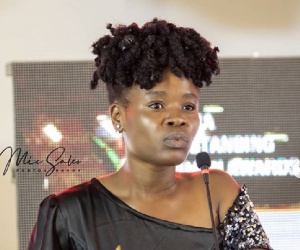Politics of Tuesday, 1 December 2015
Source: GNA
EC tasked to set up legal department
The Electoral Commission (EC) has been challenged to immediately build its capacity to respond to legal challenges by setting up a Legal Department.
An in-house Legal Department which understands the operations of the EC would quickly align any legal issue within the context of its administrative and operational process.
The in-house Legal Department’s duties could be complimented with any external solicitor to properly put the ECs case across in all legal suits, Dr Eric Oduro Osae, Head of Graduate Studies, Institute of Local Government Studies stated at Akosombo.
Dr Oduro Osae stated in a paper on: “Delayed District Level Election: Constitutional and legal matters arising, and recommendations for reforming Ghana’s elections administration” at a stakeholders review workshop organised by Coalition of Domestic Elections Observers (CODEO) on the 2014/15 District Level Elections.
The CODEO post 2014/15 review, chaired by Professor Miranda Greenstreet, CODEO Co-Chair, sought to draw lessons from the conduct of the elections to help improve the conduct of future elections, as well as to help enhance the participation of marginalised groups and the citizenry in general in local level elections and local governance.
Dr Oduro Osae noted that in view of recent legal entanglement involving the EC, it was critical for the Commission to set up the Legal Department at the Headquarters and back stoppers from all the ten regions as the business of elections was always fraught with legalities.
The EC currently has seven departments: - Elections; Finance; Information Technology; Human Resource and General Services; Research and Monitoring; Training; and Public Affairs.
“I am sure the EC has had its fair share of electoral disputes in almost all the courts in Ghana under Parliamentary and Presidential Elections, which goes to buttress the point for tightening its legal manpower,” he noted.
On application of Electoral Sanctions Regime, Dr Oduro Osae explained that section 12 of Act 451 also provides sanctions regime for the breach of the regulations made by the EC.
He noted that though the EC may have applied these regimes on a number of instances, the seemingly weak legal fighting capacity of the Commission has not seen it biting as it ought to be.
Dr Oduro Osae explained further that though the Attorney Generals Department and the police are the prosecutors of crimes against the state, in all or most of these cases the EC would have an important role to play as an important witness in gathering the evidence to support the successful prosecution of the case.
“Failure to provide or understand the importance of this basic support to the prosecution, has the potential of encouraging electoral frauds, which can mar the beauty of our electoral system since most people can commit such crimes and go scot free,” he said.
On the 2015 Local Level Elections, Dr Oduro Osae said the EC and the National Commission for Civic Education (NCCE) were required to devout much of their energies on the main Presidential and Parliamentary elections and the DLE and Unit Committee elections.
In between these two main elections are bye elections, political party elections and other subsidiary elections of which their support is required.
He said since 1993, the EC has and continue to deliver this mandate with ease and continue to improve electoral process or administration from one election to the other on a learning curve.
He said the NCCE which exits to partner the EC by providing civic education continue to face functional deficiency in their civic education and democratic citizenship mandate because of resource constraints.
The workshop was attended by NCCE, EC, Ministry of Gender, Children and Social Protection, Institute of Local Government Studies, NALAG, Youth Bridge Foundation, Abantu for Development, CFI of IDEG, and the media.










